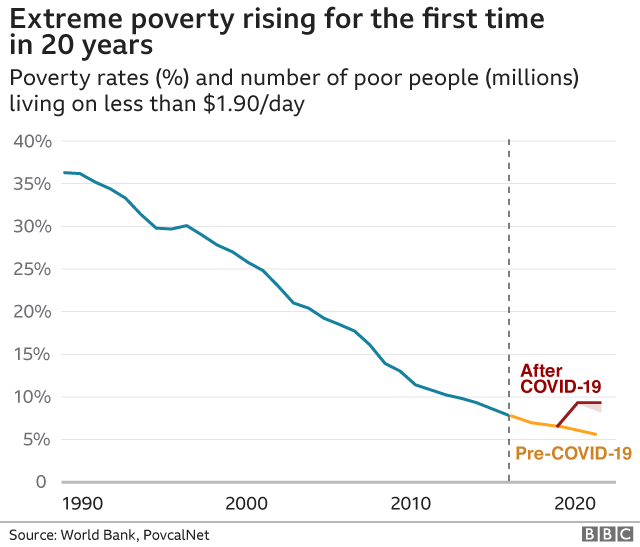Latin America’s rural and Indigenous communities have seen their incomes drop sharply as COVID-19 inflicts economic havoc across the region. With the coronavirus raging out of control in some parts of the continent, its poorest are finding difficulty making ends meet. And even the news of promising vaccines is of little comfort.
Extreme poverty is set to rise this year for the first time in 22 years, with the coronavirus expected to push up to 115 million people into that category, according to the World Bank. Extreme poverty is defined as living on less than $1.90 a day. The projected increase would be the first since 1998, when the Asian financial crisis shook the global economy. Before the pandemic struck, the extreme poverty rate was expected to drop to 7.9% in 2020. But now it is likely to affect between 9.1% and 9.4% of the world’s population this year, according to the bank’s biennial Poverty and Shared Prosperity Report.
Check out this video from AlJazeera explaining how COVID-related economic depression is impacting rural and indigenous communities across Latin America: https://www.youtube.com/watch?v=_TTuc9F3OWQ
And this article from the BBC explains how the impact of COVID-19 is threatening the reduction of extreme poverty worldwide: https://www.bbc.com/news/business-54448589




